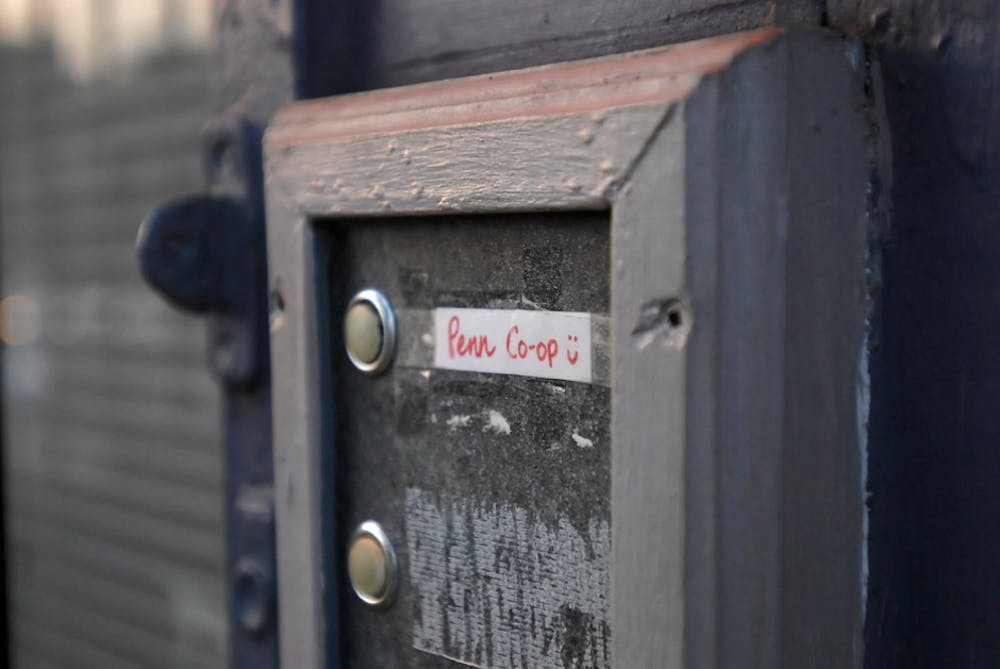Penny Jennewein doesn’t mind if she comes under fire. In her first year at Penn, the College sophomore discovered aspects of life at the University that she wanted to change, and this year, she’s putting that desire for change into action.
Along with eight other people, Jennewein has worked to found Penn Haven — a housing cooperative and community located at 40th and Chestnut streets — as a way to encourage activism on campus and also counteract some of the social tendencies she has found fault with.
In some parts of Penn, particularly nightlife, there is “a culture of complete misogyny,” Jennewein said, “but there is also a culture of excessiveness — sexuality, alcohol, greed and never wanting to stop.”
Through the housing co-op, Jennewein hopes to raise awareness of the importance of living in moderation, both in lifestyle choices and in attention to social justice.
The members of the housing co-op, many of whom met through campus activist groups like the Student Labor Action Project and the Penn Vegetarian Society, unified around the values of sustainable lifestyle and activism, Engineering sophomore and co-op member Laura MacKinnon wrote in an email.
While Civic House Founding Director David Grossman explained that there have been a number of less-formalized ventures of a similar nature on campus in past years, he added that “sustaining student-led efforts like these can be challenging because of the large number of factors that need to come together to make them successful over time.”
Determined to ensure the success of the co-op, Jennewein explained that planning meetings started in October of 2010. Aware of the challenges that Grossman expressed, the original members worked to make planning “a very cooperative process,” centered around weekly meetings and detailed plans for how the house would function, Jennewein added.
The initial plans drew inspiration from a number of co-ops in place throughout the country, both at other campuses and in independent settings. The University of California at Berkeley and Bryn Mawr College have cooperative living options for students, and Jennewein added that she modeled some aspects of the co-op off an independent housing collective in San Diego.
However, members faced a significant challenge in finding a house, MacKinnon wrote. The difficulty lay in “matching the number of committed people to the size of the house and finding a location and price that would be agreeable to everyone in a very short period of time.”
“You need to know who would be involved and what their priorities are,” said member Russell Trimmer, who will graduate from the Wharton School in December 2012. “It’s hard planning a year in advance.”
Given the stress of planning, MacKinnon wrote that at times, it was unclear if the co-op would work at all. However, in January, the group eventually decided on a house, and “one of our most memorable moments so far was the nine of us gathering in the housing office and signing the lease papers.”
Since the beginning of this semester, the members of the co-op — all but three of whom are vegetarian or vegan — have been figuring out how to live as a collaborative group of people with unique personalities and goals for the organization.
For College junior and member Andrew Ciampa, “the first year is going to be figuring out how to live together, how to make things communal.” As an only child, he was drawn to the prospect of living cooperatively with other students. “It’s hard to organize,” he added. “But there are a lot of good people and some good cooks.”
The co-op currently operates around a rotating system of chores, including cooking, cleaning and in the future, composting duties, Jennewein explained.
In addition, the group hopes to establish a garden and emphasize vegan and vegetarian food as part of their goals of social activism.
Apart from maintaining a collective living space, Trimmer emphasized that a commitment to social justice drives the members of the co-op to work together. The definition of what exactly social justice is “looks very different to some of us,” he said, but “the purpose of the co-op is learning how other people define their goals in an atmosphere where we are encouraged to talk about it.”
For Trimmer, the idea of activism involves engaging with the West Philadelphia community around campus. “There are so many homeless that we walk by every day and don’t notice,” he said. The co-op is an extension of his “desire for more community and collaboration among people who consider themselves activists at Penn.”
“We’re into discussion and reflecting about the way we relate to the world and each other,” College junior and member Meghna Chandra said. She hopes to use the co-op as a space to host activist group meetings and discussions.
“I like the idea of the atmosphere being just really relaxed and that a community of people can gather at this place,” she added.
While the co-op is still easing into its first year of existence on campus, Trimmer expressed hope for cooperative living to expand and, possibly in the future, become a part of the established system of University housing.
Almost as an alternative to the Greek system, co-ops provide a similar structure of “inhabiting a space with people and having a cohesive identity,” Trimmer added. While members have discussed the idea of an alternate rush campaign for the co-op, “this is a community where the intention is for inclusion.”
“There are a lot of people on campus who agree with most of our values of not exploiting people and not demeaning them — treating people as people,” Jennewein said. While she too would like to see the ideals of the co-op expand, the organization will remain, at its core, “a space where people concerned with causes of justice can come together.”



